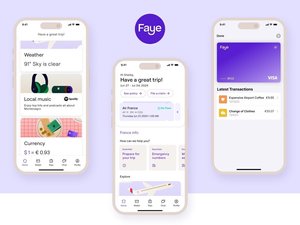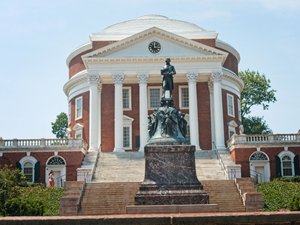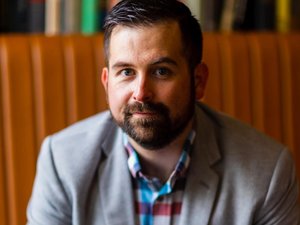
A VCU professor's dream to make molecules on demand is $1 million closer to becoming a reality.
Tyler McQuade, who teaches at the Virginia Commonwealth University College of Engineering, is leading a multi-university project using artificial intelligence to help scientists create molecules for everything from shampoo to microchips.
It just became one of the first projects to land nearly $1 million in funding through a new National Science Foundation initiative called the Convergence Accelerator.
McQuade and his collaborators will pitch their prototype in March in a bid for additional funding of up to $5 million. The team includes VCU professor James Ferri, University of Richmond professor Carol Parish and University of Florida professor Adrian Roitberg. Two companies are also involved: Arlington, Va.-based Two Six Labs and Boston's Fathom Information Design.
The team plans to aggregate an open network of molecular sciences data, pulled from a wide range of sources including academia, industry and government.
VCU Ph.D. student Adam Luxon, who has been working on the project, summed it up: “We want to essentially make the Alexa of chemistry.”
The idea fits into NSF’s Big Ideas project, “Harnessing the Data Revolution,” which aims to develop an advanced cyber-infrastructure to accelerate data-intensive research.
Molecular scientists and engineers don't have a collaborative network that can harness data science to build models, and while they can depict a molecule's properties, there's no standard way to represent molecular performance.
McQuade's project aims to fill these gaps with the concept of a “molecular imprint,” which represents molecules by combining line drawing, geometry and quantum chemical calculations into a single, machine-learnable format. They will develop a data collection platform for creating the imprints and mining the data, and will develop machine learning tools to create prediction models.
“The ability to compute molecular properties using computational techniques, and to dovetail that data with experimental measurements, will generate databases that will produce the most comprehensive results in the molecular sciences,” Parish said in a statement. “We seek to collaborate with others to provide this structure; an open knowledge network or repository where scientists can deposit their molecular-level experimental and computational data in exchange for user-friendly tools to help manage and query the data.”
The team also plans to develop a toolkit for processing and visualizing the data. Roitberg, who researches advanced visualization, said that could take the form of a virtual reality program where users could, for example, find materials that are soluble in water but not oil, and then browse for similar materials nearby.



